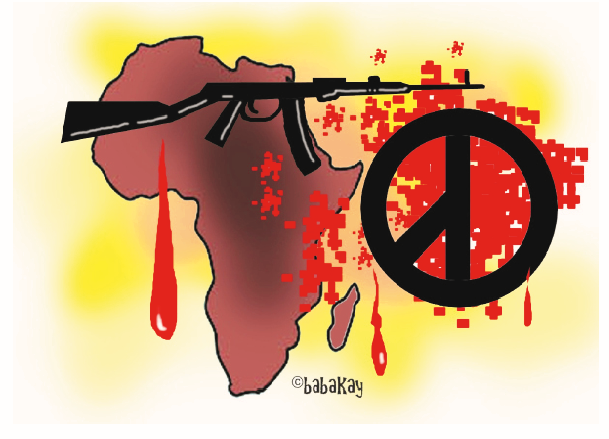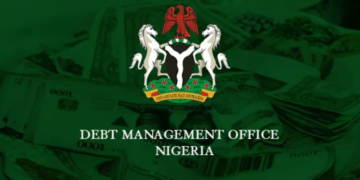A gale of military takeover of governments, sweeping across parts of Africa, is beginning to raise apprehensions about a possible return of dictators through the barrel of the gun instead of statesmen through the ballot box. Mali, Burkina Faso, Niger and, recently, Gabon have fallen under this system of government that denies the people a role in who governs them.
The fear this has generated among African leaders is so palpable that Cameroun and Rwanda, in dread, reshuffled their military high commands, retiring some, in a move that suggests that they were not in any mood to take chances that could turn out to be inimical to their continued stay in office. Even Nigeria’s President Bola Ahmed Tinubu, on his way to India for the scheduled G-20 summit, took some time off to secure assurances from his military advisers that all will be well in his absence.
The response of the international community, including regional bodies like African Union (AU) and the Economic Community of West African States (ECOWAS), to the forceful takeover of the reins of power, has, at best, been uncoordinated emphasizing the realization that something must be definitely wrong somewhere to warrant this resurgence of the jackboot.
In all of these cases mentioned above, citizens in those affected countries have trooped out into the streets in jubilation and solidarity with the soldiers who they perceive to have come to rescue them from the vice-like grip of sit-tight leaders and corrupt tyrants. The spontaneity of their reaction, as usual prompted by blind emotion, is evidence that they know very little about the issues involved. Even if they knew, it didn’t matter for as long as a set of bad leaders have been kicked out to be replaced by another one.
Perhaps, it is pertinent to put the concept of coups in perspective so as be able to appreciate the situation the African continent is expected to grapple with in the evolving scenario. It must be understood, in our opinion, that there are two types of coups, both with undesirable implications for the citizenry who are too docile to decipher the inherent challenges each poses to their well-being.
It is also important, in our opinion, to point out that both cannot co-exist which implies that one leads to the other. In most parts of Africa, there is a pervasive confusion in the interpretation of democracy and civilian rule. Out of ignorance or deliberate error, both are used interchangeably. It is germane to stress that what Africans have in place is civilian rule, certainly not democracy.
Democracy, as defined by the legendary 16th President of the United States of America, Abraham Lincoln, is a government of the people, by the people and for the people. This does not yet apply in parts of Africa. For the sake of this discourse, a semblance of democracy, shadowy at best, brings to life civilian government often shorn of the necessary ingredients that qualify the concept of democracy. In that photocopy democracy, the people play minimal role and, to that extent, their interests are hardly part of the soapbox rhetoric. On election day, their votes are bought or forcefully confiscated by politicians and their conniving electoral officers who dare them and their preferred candidates to go to court if they felt so aggrieved.
And this, in our considered opinion, is where the subject of civilian coup comes into the political lexicon. When politicians subvert the popular will, use street urchins to snatch ballot boxes, suppress voters and prevent them from exercising their franchise freely, intimidate acquiescing electoral officers into manipulating the figures in their undeserved favour, what follows is a coup against the people. That explains why on coming into office, based on that flawed process, their major pre-occupation is to consolidate their hold on power for themselves, their associates and cronies as a means towards recouping all costs incurred in that illicit grab of state instruments of authority. The pecuniary desire is undisguised. And to retain the oddity, suppression and the violation of basic rights become an indispensable accompaniment.
Under this circumstance that unleash suffering and hardship on the people, some ambitious military personnel decide to take advantage of the discontent among the people, not for the purpose of making amends, but solely for the protection of class interest. The coupists in Niger and Gabon, for instance, are long beneficiaries of the rot in the system they claim, ostensibly, to have come to cleanse and put aright.
In our considered opinion, it is imperative to emphasise that the quagmire the political rulers in Africa, not yet bitten by the coup bug, find themselves is undergirded by the fact that most of them came into office through a process that is not sufficiently democratic. However, and with all its inadequacies, we are persuaded to posit (delete) that democracy is still the best form of government.
Our argument is further reinforced by the binding need to unfetter that system of government where the peoples’ will prevail, so as to make tenure for life in office unattractive, discard tyrannical tendencies and place the welfare of the masses, through good governance, at the highest premium. This is the only way to go.





